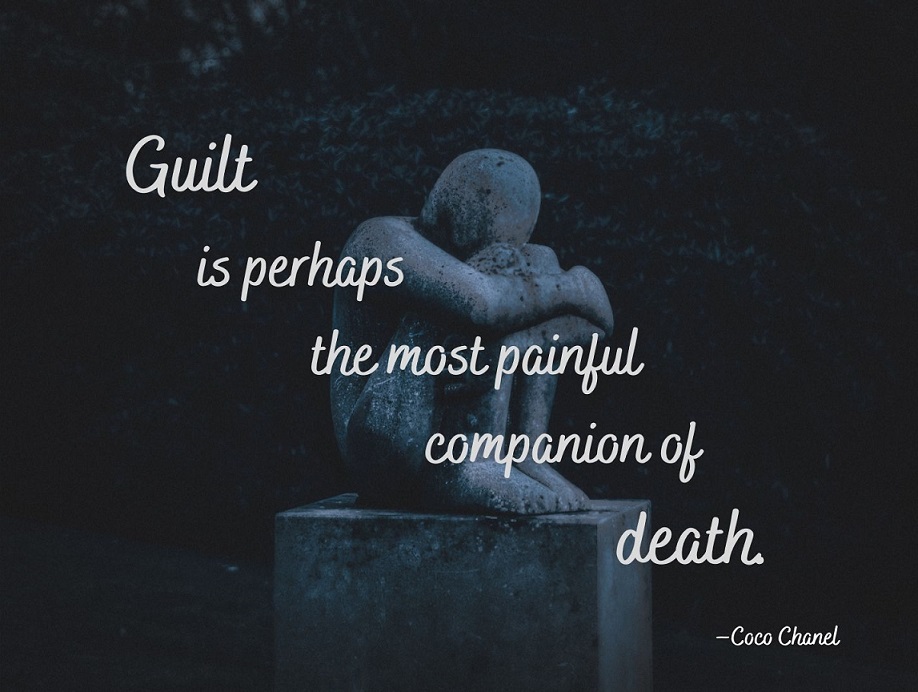
NOTE: This is another article I wrote for the monthly newsletter of the Madison County, Ohio, Board of Developmental Disabiliites. I hope it speaks to you.
You’ve heard about the five stages of grief, right? They were identified by Swiss-American psychiatrist Elisabeth Kubler-Ross in her 1969 book On Death and Dying.
- Denial
- Anger
- Bargaining
- Depression
- Acceptance
I’ve always wondered why “guilt” wasn’t included.
What is it about guilt that holds such power over us?
Naturally, we’ve all done things or not done things that we’ve regretted. When that happens, we usually have an opportunity to go back and make amends or ask for forgiveness. But feeling guilty about things over which we had no control is pointless.
But I still do it.
I tend to hold on to guilt like a life preserver. I can’t seem to let it go.
As a mother, I look back on when my sons were younger and all the mistakes I made and the mothering skills I didn’t quite master. Things like discipline and patience and cell phones and friends.
I think about all the times I blurted out “No” without even thinking about it. I should have said “yes” more often. I should have made a bigger deal about their birthdays. We should have made more of an effort to take our two younger boys on vacations. I shouldn’t have used my oldest son, Evan, as my excuse to not do things. I should have been more patient. I should have been more understanding. I should have been more supportive.
The list goes on and on. I am a pro at should-ing all over myself.
But there are some other things I feel guilty about that I know weren’t under my control. I still beat myself up over them, though.
All of Evan’s disabilities were caused by his premature birth – blindness, seizures, cerebral palsy, his feeding tube. In my head, I KNOW his early birth wasn’t my fault.
But my heart plays tricks on me and takes me back to the moment my water broke when I was 19 weeks pregnant. Why? What did I do wrong? My body couldn’t hold him inside and keep him safe. Therefore, Evan’s disabilities were all my fault.
I should have pushed him more in his therapies. I should have made a bigger deal about wrist splints and ankle AFOs. I should have worked with him more at home between therapy appointments. Oh, the list of shoulds!
What about all those times I wished I didn’t have to change an adult man’s diaper? Or the times I hoped for a few more minutes of sleep? Or when I got angry because he was yelling, and I couldn’t figure out what was wrong and I just lost my temper and yelled at him to “Shut up”?
Or the times I wished both of us parents could go to a movie with our two younger boys. We stopped taking Evan because it always seemed like he would hear a sound that he thought was cool and spend the rest of the movie trying to replicate it, much to the dismay of other movie-watchers. One of us would end up sitting in the hall with him because he was making so much noise.
Or feeling embarrassed because we took Evan with us to a restaurant. Once a couple asked to move because Evan was making too much noise.
I’d give anything to take him to a restaurant now. Or listen to him babble. Or hear his giggle.
I have spent a lot of time trying to work through this guilt. I’m slowly realizing I did the best I could.
No matter your situation, I bet you did, too.
We can’t always do the right thing. We’re humans and we fall short of what we think is ideal. But we still get up every day and do what needs to be done. Change diapers. Blend food. Order supplies. Attend appointments. Brush teeth. Give sponge baths. Be hyper-vigilant about everything our kids do.
So, what do we do with all this guilt? How do we work through it?
I read an article on healthline.com about guilt. In it, the author suggested starting a journaling practice. Name Your Guilt, the article said. Free write about your guilty feelings. Don’t edit yourself. Just write whatever crosses your mind. Getting those feelings out on paper is one way to get them out of your head.
In your freewriting, the article says to Explore the Source. Feeling guilt over something you think you contributed to is normal, but when we accept blame for things over which we had no control, we become self-destructive.
And ruminating on the situation doesn’t change anything. Replaying the event in your head and making up new outcomes only keeps you fixated on what happened. You don’t need to forget about what happened. But you do need to forgive yourself.
But we can’t do this alone. Talk to your friends, family, a therapist or me!
Be compassionate with yourself.
During an online course, I was asked to describe myself, which I did using some very negative words. Then I was asked to turn to the instructor and tell her those very same things about herself. I couldn’t do it. The instructor pointed out that I talk to myself in ways I would never dream of saying to someone else.
Be kind to yourself. Remember your blessings. Write them down.
Moving on and letting go of guilt is hard, but necessary, work.
We can do that work together.
Until next time, I wish you peace.
Susie from Stix-N-Stonez
